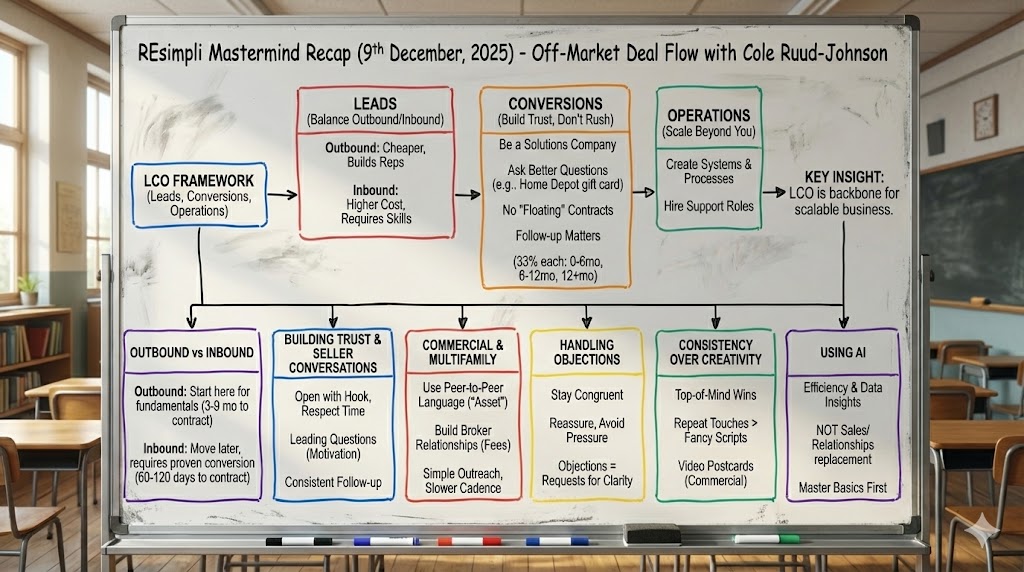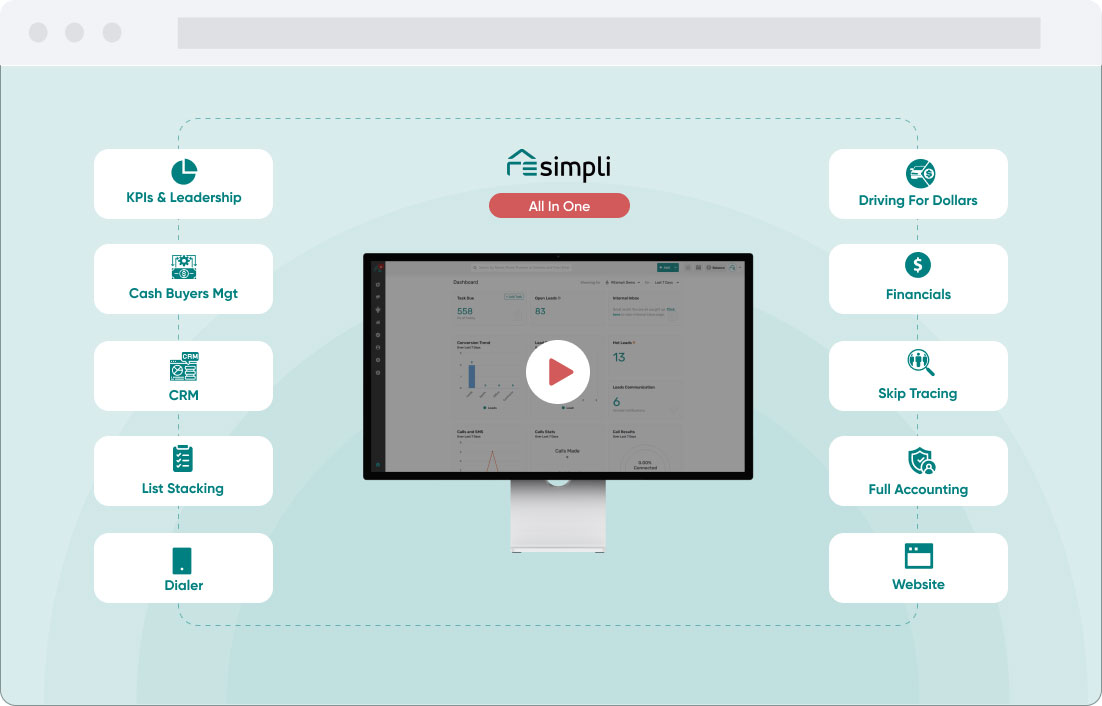The Role of Real Estate CRM in Building Strong Client Relationships
4 Key Ways CRM Helps Estate Agents Elevate Client Relations
In real estate, cultivating a strong, positive real estate agent-client relationship is critical to sustainable success.
Agents are not only entrusted with facilitating significant financial transactions but also perceived as partners in helping individuals and families find their dream homes.
A real estate agent Customer Relationship Management (CRM) system is an excellent tool that enables professionals to foster and nurture enduring relationships with clients.
At the heart of this lies the principle of understanding and catering to the diverse needs and preferences of clients, which can be facilitated by using a robust real estate CRM, such as REsimpli.
The importance of maintaining resilient and strong relationships with clients in the real estate sector cannot be stressed enough.
It’s not only about closing deals but also building a rapport that encourages long-term engagement and positive referrals.
A harmonious real estate client relationship often translates to a thriving business underpinned by trust, efficiency, and personalized service.
Ways a Real Estate CRM Helps Build Strong Relationships with Clients
The technological advancements of CRM for real estate have carved pathways for agents to foster stronger and more meaningful connections with their clients.
Let’s delve deeper into the various avenues through which a real estate CRM helps in building client relationships:
Personalized Communication
In a sector where each client’s needs and preferences are distinctly unique, personalized communication is not a luxury but a necessity.
A real estate agent CRM allows realtors to store intricate details about each client, including their preferences, financial brackets, and communication history.
Leveraging this data, agents can craft messages and proposals that resonate on a personal level with each client, enhancing the probability of successful transactions and fostering a positive real estate agent-client relationship.
Timely Follow-Ups
Follow-ups are critical to nurture relationships in real estate.
Through effective real estate CRM systems, agents can schedule timely follow-ups, be it for sending new listings, market updates, or simply checking in to maintain a warm relationship.
A well-timed follow-up signals to the client that their needs are in focus, fostering an attentive and responsive relationship.
Streamlined Collaboration
Collaboration is the keystone of any successful project.
Real estate investor CRM software facilitates seamless collaboration between various stakeholders, including clients, agents, and other professionals involved in the transaction.
By using CRM tools, agents can streamline document sharing, schedule meetings effortlessly, and maintain a cohesive communication channel that enhances the efficiency and harmony of the transaction process, laying the foundations for a strong real estate client management strategy.
Enhanced Customer Service
Quality customer service is often the differentiator between a good and an exceptional real estate agent.
The best CRM for realtors equips agents with the tools needed to provide an elevated level of customer service.
From addressing queries promptly to proactively offering solutions and insights, a real estate CRM system helps establish a reputation of reliability and professionalism, paramount to building successful customer relationships.
Additionally, the analytics tools incorporated within a real estate CRM can aid agents in offering data-driven advice to clients, providing a nuanced approach that often results in superior client satisfaction and more fruitful outcomes.
Through this enhanced customer service, agents can build strong client relationships, which is often rewarded through client loyalty and positive referrals.
Real-World Examples of CRM Empowering Agents
Agents are continuously striving to refine their strategies to foster deeper connections with their clientele. Using a robust CRM system results in tangible improvements in agents’ day-to-day operations.
Here are some concrete examples that illustrate the transformative power of employing a CRM system in real estate:
Personalized Marketing Campaigns: Agents can use the CRM to analyze the preferences and behaviors of different client groups and craft targeted marketing campaigns.
For instance, sending personalized emails to clients seeking homes in specific neighborhoods, thus improving the efficacy of their marketing efforts and fostering a positive real estate agent-client relationship.
Automated Alerts and Notifications: Real estate agents can set up automated alerts to notify them of important milestones in the client’s buying or selling journey.
For example, a CRM can remind agents to reach out to clients on the anniversary of their home purchase, fostering a culture of care and attention that goes beyond the initial transaction.
Comprehensive Client Profiles: Agents can create detailed profiles for each client within the CRM, recording not only contact information but also preferences, feedback, and interaction history.
This data repository can be instrumental in offering personalized services and suggestions, enhancing the real estate client management process.
Efficient Document Management: Real estate transactions involve a myriad of documents.
Using CRM for real estate, agents can streamline the document management process, providing clients with a centralized platform where they can easily access all necessary documents, thus speeding up the transaction process and reducing the likelihood of errors or delays.
Collaborative Platforms: A CRM system offers platforms where agents can collaborate seamlessly with other professionals involved in a real estate transaction, such as mortgage brokers and home inspectors.
This not only facilitates smoother transactions but also fosters a collaborative environment where all stakeholders can work in harmony, delivering better and more efficient results for their clients.
These examples demonstrate the transformative potential of a real estate CRM system in enhancing the efficacy and reach of agents.
By integrating this technology into their operations, agents can elevate their service delivery, fostering relationships that are characterized by trust, efficiency, and personalization.
Conclusion
It is clear that real estate CRM has a vital role in building and maintaining strong client relationships.
By embracing the dynamism and capabilities of a real estate CRM system, agents can optimize their business operations and pave the way for a future where client satisfaction and business growth walk hand in hand.
To enhance your client relationships, explore our dynamic and user-friendly CRM tool at REsimpli—the only all-in-one real estate investor CRM software that helps you manage Data, Marketing, Sales, and Operations.



